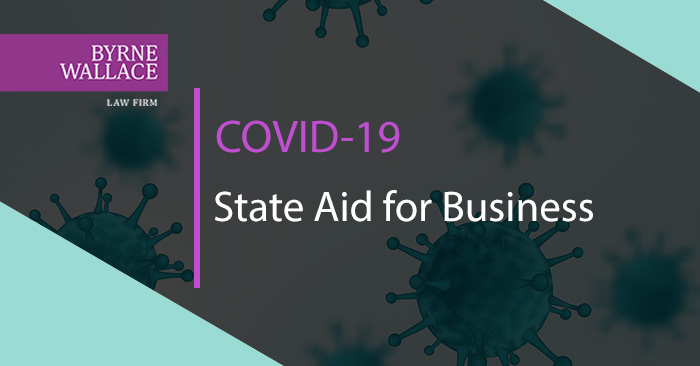COVID-19: More emergency State aid measures approved for businesses
Friday, 27 March 2020
Following on from our previous update here, the European Commission has now approved a total of fourteen emergency State aid measures in the past two weeks in light of the COVID-19 outbreak.
The majority of these measures have been adopted under a new Temporary Framework introduced by the Commission, which loosens the State aid rules applicable to Member State economies affected by the outbreak and gives greater scope for public financial assistance. The new Framework permits State aid through a variety of methods including direct grants, State guarantees, subsidised public loans, safeguards for banks lending to SMEs, and short-term export credit insurance, with fewer restrictions on the aid amounts and eligible costs that can be provided to beneficiaries.
The new Framework relies on Article 107(3)(b) of the Treaty on the Functioning of the European Union (TFEU), which allows for aid to be granted to “remedy a serious disturbance in the economy of a Member State”. Each scheme notified and approved under the Framework relates to sectors of the economy and businesses set to most severely affected by the outbreak.
We set out below a brief summary of the measures adopted to date in other EU Member States.
1. Providing liquidity through loan guarantee schemes
Providing liquidity to businesses through loan guarantee arrangements has been the most popular method in notifications to the Commission to date, with the majority of schemes being aimed at SMEs. For example, Denmark is operating a €130 million guarantee scheme for SMEs, Latvia is offering loan guarantees and subsidised loans for a total of €250 million, and Italy is also running a State guarantee scheme to support SMEs affected by coronavirus outbreak.
Portugal is running a sector-specific €3 billion guarantee scheme primarily for businesses in the tourism sector, Spain has introduced a €20 billion guarantee scheme for companies and the self-employed, while France expects its guarantee scheme to exceed €300 billion.
2. Direct grant measures
Measures involving direct grants to companies have also been adopted widely. Germany is operating a direct grant scheme to support companies affected by the outbreak, while the UK’s scheme is aimed at SMEs and has a budget of £600 million. Luxembourg has also introduced a €300 million scheme to support companies and liberal professions during the crisis, while Italy is granting €50 million to support the production and supply of medical equipment such as ventilators, masks, and goggles to tackle the crisis.
3. Compensation for losses suffered
Not all COVID-19 related State aid measures have been notified under the Temporary Framework and in accordance with Article 107(3)(b) TFEU. It is also open to Member States to rely on Article 107(2)(b), which enables them to compensate businesses for damages directly caused by “natural disasters and exceptional occurrences”. Denmark has notified two schemes under this Article, granting €12 million to compensate businesses for damages caused by cancellations of large public events, and €1.3 billion to compensate self-employed workers for damages suffered due to coronavirus outbreak.
The key difference in notifying measures under Article 107(2) (as distinct from under Article 107(3)) is that the aid must be to compensate beneficiaries for damage already suffered, rather than providing liquidity ahead of time. Therefore, it is likely that more of these types of schemes will be notified once the true impact of COVID-19 on the economies can be assessed and quantified.
Although more restrictive than the methods outlined above, other State aid-related measures remain available to public bodies to support business during the COVID-19 crisis. For example, public bodies can: (i) deploy the market economy investor principle to take equity stakes in struggling businesses, (ii) provide aid of up to €200,000 per undertaking over a rolling 3 year period under the de minimis Regulation, (iii) use the Commission’s guidelines on State aid for rescuing and restricting non-financial undertakings in difficulty, or (iv) use the EU General Block Exemption Regulation to grant certain types of aid.
For further information please contact Seán O’Donnell from the ByrneWallace Litigation & Dispute Resolution Team.
Please note that the content of this summary does not amount to professional advice. Legal and tax advice should be sought in respect of specific queries. The COVID-19 situation is evolving rapidly and this update is provided on the basis of information available as at 27 March 2020.

